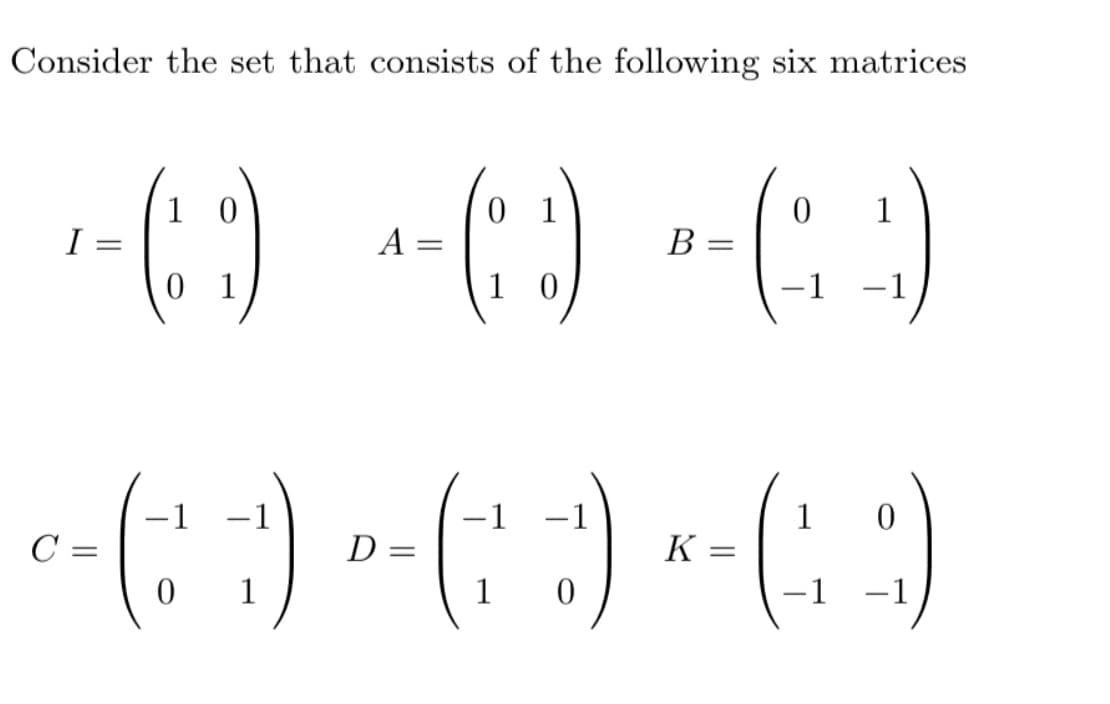Consider the set that consists of the following six matrices 10 -6) :) I 0 1 C = (3) 0 1 A = D = 1 () :) (3) 1 0 0 1 --(::)) B -1 K = (19)
Consider the set that consists of the following six matrices 10 -6) :) I 0 1 C = (3) 0 1 A = D = 1 () :) (3) 1 0 0 1 --(::)) B -1 K = (19)
Elementary Linear Algebra (MindTap Course List)
8th Edition
ISBN:9781305658004
Author:Ron Larson
Publisher:Ron Larson
Chapter3: Determinants
Section3.CM: Cumulative Review
Problem 17CM: Find the sequence of the elementary matrices whose product is the non singular matrix below. [2410]
Related questions
Question
(a) Show that the set of matrices given above equipped with the operation of matrix multiplication is a group.
(b) Show that this group is not abelian.

Transcribed Image Text:Consider the set that consists of the following six matrices
0 1
I
-- () ^-(₁ :)
A =
1
B
=
0
1
(4)
C
c = ( ₁ ) - ( ₁1 )
(2) - (2)
(19)
D =
K =
1
0
Expert Solution
This question has been solved!
Explore an expertly crafted, step-by-step solution for a thorough understanding of key concepts.
Step by step
Solved in 6 steps with 6 images

Recommended textbooks for you

Elementary Linear Algebra (MindTap Course List)
Algebra
ISBN:
9781305658004
Author:
Ron Larson
Publisher:
Cengage Learning

Linear Algebra: A Modern Introduction
Algebra
ISBN:
9781285463247
Author:
David Poole
Publisher:
Cengage Learning

Elementary Linear Algebra (MindTap Course List)
Algebra
ISBN:
9781305658004
Author:
Ron Larson
Publisher:
Cengage Learning

Linear Algebra: A Modern Introduction
Algebra
ISBN:
9781285463247
Author:
David Poole
Publisher:
Cengage Learning